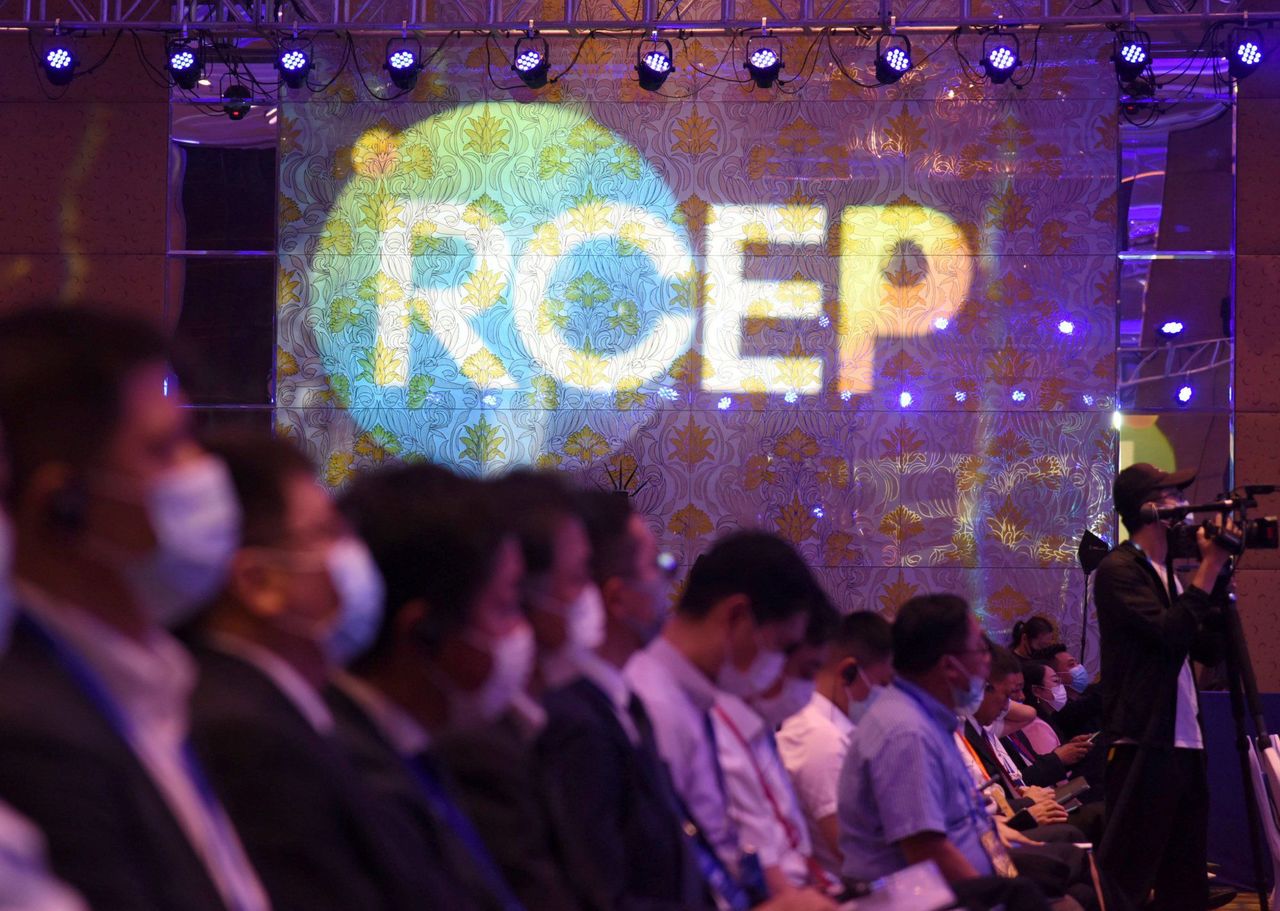Hong Kong News

Most Japanese firms in Hong Kong keen on expanding to areas covered by trade pact
At least 60 per cent of Japanese-affiliated companies in Hong Kong have expressed an interest in expanding their operations to regions covered by the world’s largest free-trade pact, including the Greater Bay Area and Asean, a survey has found.
Although Hong Kong is not yet a member of the Regional Comprehensive Economic Partnership (RCEP), almost 90 per cent of 104 Japanese companies surveyed said they believed the city’s core strength as a hub for the trade pact lay in its business networks with mainland China.
The survey, conducted by the Trade Development Council (TDC) earlier this year, found that almost 80 per cent of respondents also believed Hong Kong was a premier platform for the pact because of the free flow of capital and currency exchange freedom, while 72 per cent cited the city’s efficiency as a transshipment and distribution hub.
 The RCEP, implemented in January 2022, connects 15 Asia-Pacific countries.
The RCEP, implemented in January 2022, connects 15 Asia-Pacific countries.
“Between mainland China and Japan, the RCEP is the first free-trade agreement they entered into in regional form. That’s why we see the additional benefits as higher [for Japan], that’s why we picked Japan’s market [for surveying] first,” Irina Fan, the council’s director of research, said on Monday.
Fan also said the survey was meant to help understand Japanese companies’ perception of Hong Kong as an effective means of conducting RCEP-related business, adding the council would look into surveying locally based firms from other regions.
Japanese companies surveyed include those involved in international trade, the wholesale and retail sectors, finance and logistics.
The RCEP, implemented in January 2022, connects 15 Asia-Pacific countries including 10 members of the Association of Southeast Asian Nations. The 15 economies are Australia, Brunei, Cambodia, mainland China, Indonesia, Japan, South Korea, Laos, Malaysia, Myanmar, New Zealand, the Philippines, Singapore, Thailand and Vietnam.
Chief Executive John Lee Ka-chiu noted last year that all were major trading partners of Hong Kong and accounted for more than 70 per cent of its total merchandise trade last year, and about half of the city’s trade in services and investments in 2020.
Lee in November said the city was set to gain early admission to the RCEP with the support of all 10 Asean members.
The pact, which covers nearly a third of the world’s population and about 30 per cent of global gross domestic product, aims to eliminate as much as 90 per cent of tariffs on imports among signatories within 20 years.
It also marked the first ever free-trade agreement between China, Japan and South Korea – Asia’s largest, second largest and fourth largest economies.
Council economist Corey To said out of the 61.5 per cent of respondents planning to expand their RCEP operations through Hong Kong in the next three years, more than 40 per cent had selected the bay area, making it the most popular destination.
The bay area is Beijing’s scheme to link Hong Kong, Macau and nine southern Chinese cities into an economic powerhouse by 2035.
The Asean region was the next most popular destination, with more than 39 per cent of Japanese companies planning to expand their RCEP business through the city to the bloc. Other regions they are planning to expand to include the rest of the mainland, Australia, New Zealand and South Korea.
To also said more than half of respondents had already enjoyed RCEP benefits in Hong Kong even though the city was not yet a member, including lower tariffs and streamlined customs procedures.
Once Hong Kong became a member, 79.5 per cent of the respondents anticipated even more benefits, he added.
The council noted Hong Kong had been an important business hub for Japanese companies, hosting 1,388 regional headquarters and offices for firms from the country as of last year.
RCEP economies also accounted for 71 per cent of Hong Kong’s merchandise trade in 2022, with the city having established free-trade agreements with 13 of the 15 members.











